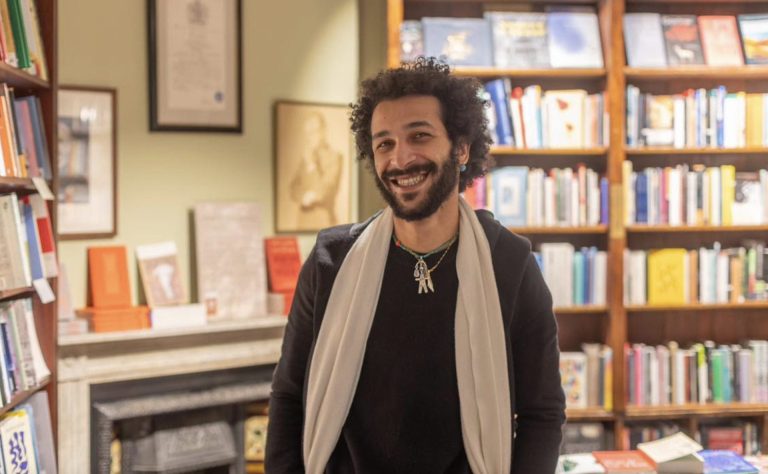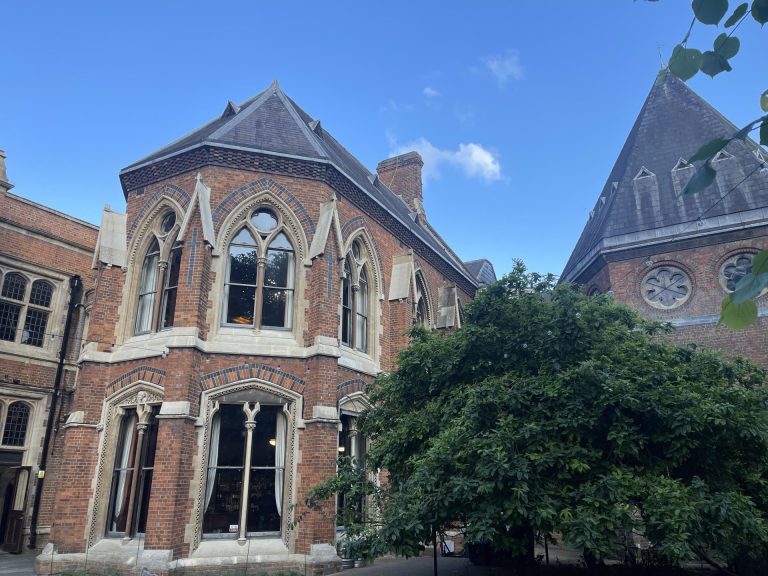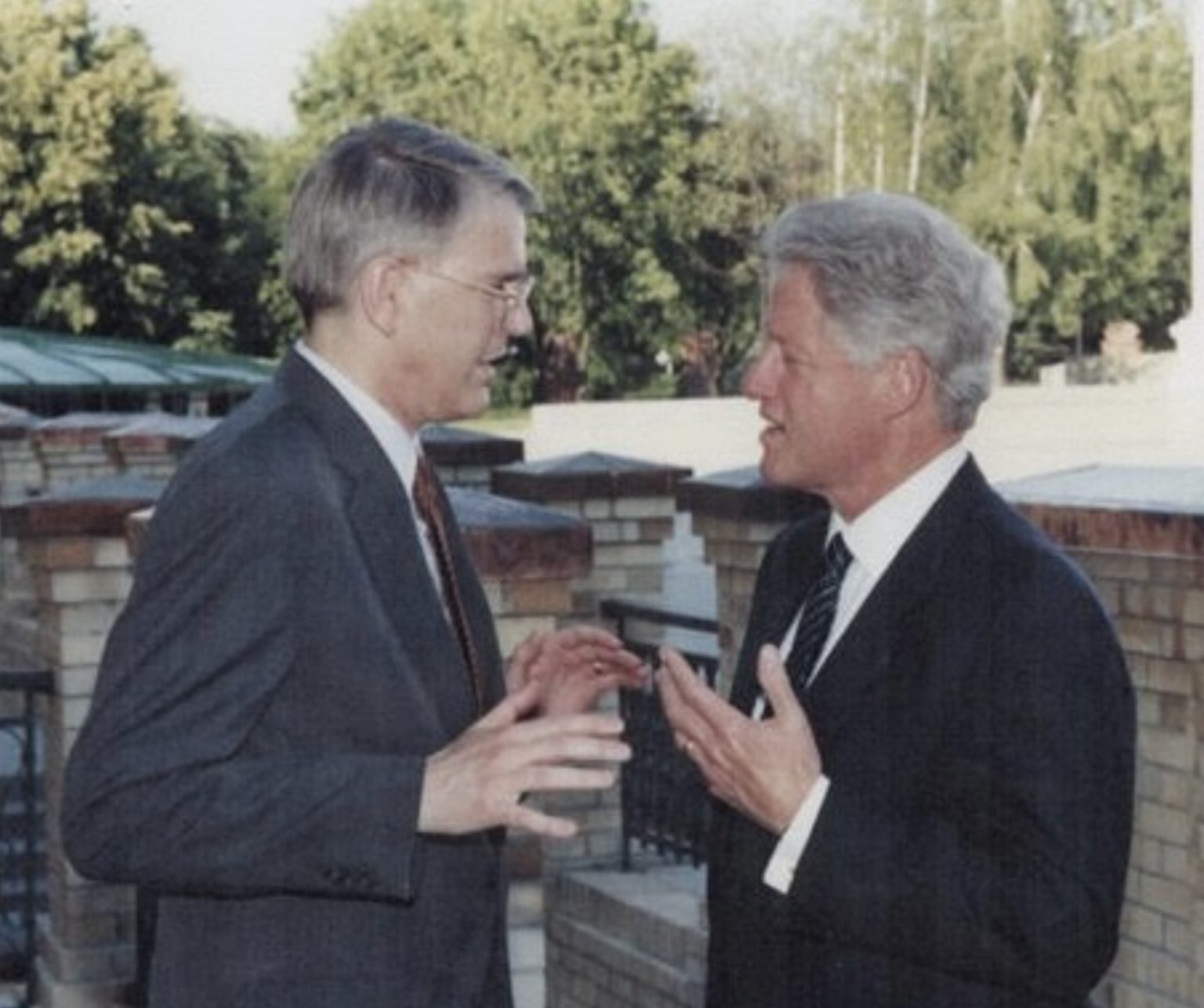What’s in a name?
Today, the names Saïd, Blavatnik, and Rothermere are as prominent in the landscape of Oxford’s institutions as the long-standing names of Rhodes, Ashmole, and Radcliffe, among many others. Until 2022, the Sackler name, now marked by its association with the opioid epidemic, graced the titles of six different institutions, posts, and funds related to the University of Oxford.
In parallel, but with a much older legacy, the former Codrington Library of All Souls was also renamed in 2020 after the College was forced to reckon with the history of slavery tied to that donor and the funds endowed to them in 1710. Both new and old, these often controversial names are emblazoned across the University’s most important institutions as rewards for the largesse of donors. They continue to stand as a testament to the University’s chronic reliance on external funding to finance its operations and maintain its status as a world-leading university.
When it comes to external funding, the University has had perennial issues with transparency. All major donations are accepted after an opaque, University-led process of due diligence; some donations – including very large ones – remain anonymous to the public altogether.
The University assures that “all significant new funders or new gifts or grants from existing funders are reviewed by the Committee to Review Donations and Research Funding (CRDRF).” The CRDRF conducts due diligence to review external funding and donations. The University describes it as a “robust, independent system taking legal, ethical and reputational issues into consideration before gifts are accepted.” Yet the review process isn’t transparent – and approximately 700 entities including private companies are on a ‘Pre-Approved list’ to bypass it altogether.
The University has been faced with severe scrutiny towards its external funding arrangements, which have recently culminated in repeated calls for greater transparency from academics and members of the student body.
Scandals, investigations, and reputation laundering.
Since 2022, the University has featured prominently in several investigations conducted by independent outlet, openDemocracy, into sources of external funds and donations received by UK higher education institutions. In March of that year, it reported that sanctioned Russian oligarch Vladimir Potanin “had donated $150,000 to an Oxford University fellowship scheme named in his honour” as a response to a Cherwell report on the oligarch’s £3m endowment for an Earth Sciences fund in the University.
Speaking with Cherwell, Jenna Corderoy, a lead reporter on openDemocracy’s investigations team, said: “I really do think it’s vital and ethical that universities, because they wield such great influence, tell students and the public how they are funded.”
Other investigations have shed light on the extent of fossil fuel donations to the University: “Oxford University also regularly consults fossil fuel companies about FOI requests, having taken between £10.8m and £20m in funding from them since 2016/17.” As well as defence contractors: “Oxford University told openDemocracy that Rolls-Royce gave over £17.5m but said it could provide no further details since it would reveal confidential information.” Finally, in a large-scale investigation into anonymous donations, it found that: “Oxford University alone accepted more than £106m in anonymous donations – the highest amount of any Russell Group university.”
In late 2023, Cherwell investigated the Oxford Nizami Ganjavi Centre, an institution named after a thirteenth century poet and not the donor responsible for an anonymous gift of £10m to the University, and whose real identity still remains unknown. It was reported that Nargiz Pashayeva, sister-in-law of the current President of Azerbaijan sat on the board of the Nizami Ganjavi Centre and was also identified as a key facilitator for the creation of the Centre itself.
Crucially, it was also found that Pashayeva had been quoted saying she “would like to thank Mr. Iskandar Khalilov for his financial support of the Oxford Nizami Ganjavi Centre” in a 2017 article from the Azeri outlet Azernews. Cherwell’s further inquiries into Khalilov as the potential anonymous donor were inconclusive. An FOIA request to the University to disclose the name of the donor was rejected on the grounds of a “breach of data protection principles” and “prejudice to commercial interests.”
PpenDemocracy’s inquiries into the matter have been similarly frustrated; however, it claimed, “that the University is so insistent on keeping the donor out of public scrutiny that it is going to court to block a Freedom of Information request from openDemocracy.” In turn, the University responded that “openDemocracy had taken the Information commissioner to a tribunal after the Commission ruled for the University”.
Recently, Dr John Heathershaw, a Professor at the University of Exeter and a notably active proponent of transparency in university funding, told Cherwell: “in the Nizami Ganjavi case, Oxford claimed to the information officer that there was no risk to reputation laundering because the identity of the donor was kept secret.” Heathershaw is engaged in the research of the global phenomenon of ‘reputation laundering’ defined “as the intentional, minimising or obscuring of evidence of corruption and authoritarianism in a kleptocrat’s home country and rebranding kleptocrats as engaged global citizens.”
Heathershaw elaborated: “This suggests that the University fundamentally misunderstands the nature of reputation laundering and the character of a kleptocratic environment such as Azerbaijan. It is typical in such a place for key businesspeople to act on behalf of the kleptocratic elite, as a nominee or third party, to launder their money and their reputations. Reputation laundering of the state and society is also a benefit to the elite.”
All roads lead to the CRDRF
Twenty-two years ago, a cash-for-places scandal rocked the University. A Sunday Times reporter, posing as a wealthy banker ready to make a £300,000 donation to Pembroke College, was told his son’s application would be looked upon “extremely favourably.” The Rev. John Platt, a senior fellow at the college, told the undercover reporter that his son would be given “a guaranteed entry,” adding, “Tutors understand. They see the bigger picture.”
The fallout was massive. Platt and another don swiftly resigned and the University opened an inquiry. Three months later, the Committee to Review Donations and Research Funding (CRDRF) was established. It aimed to ensure that all donations accepted by the University were ethical, legal, did not cause any conflicts of interest, and would not do “damage to the reputation of the collegiate University.”
The University describes the CRDRF as a “robust, independent system.” The Committee, made up of ten members appointed by Council, assesses all major donations (above £1m) as well as what an internal report characterises as “higher-risk” donations of any size.
In 2021/2022, the CRDRF declined 12% of potential donations. A CRDRF internal document Cherwell has accessed emphasises that the assessment of funding is “complex,” and much of the language employed in official documents is opaque.
Publicly available criteria against which the acceptance of funding is assessed includes guidance on donations related to illegal activity, the tobacco industry and fossil fuels. With regards to illegal activity, some considerations include that if “the University would be acquiring the proceeds of crime or be otherwise involved in money laundering activity” or “the University would be involved with terrorist financing activity”, funds must be rejected. In contrast, considerations about the “wider interests of the University” include whether funds will “otherwise do harm to the reputation of the university.”
An appendix of the CRDRF’s annual report refers to donors with a “tarnished” reputation, without further defining what exactly is meant by tarnished. They further stipulate: that they will consider donors with tarnished reputations where “the behaviour which led to the funder’s reputation being tarnished has clearly ceased.”
In 2019, the University introduced a list exempting approximately 700 entities from review. All funding from these entities not over £5 million is accepted immediately. This includes a ‘Pre-Approved List’ of 493 entities described only as “entities with currently valid approvals” whose identity the University chooses not to share. When asked which entities were pre-approved, the University told Cherwell they would not disclose the names of companies on the list of companies and groups “on the grounds of commercial interest and confidentiality.”
Also not subject to review are approximately 163 ‘spin-out companies’ (in which the University owns a stake), as well as 107 ‘Gold List’ entities – low-risk organisations including UK government departments and EU institutions.
A “significant minority” of major donors, which contributed about £75m between 2017 and 2022 to the University, wish to remain anonymous. For example, the name of the single donor who provided £10m to fund the Nizami Ganjavi Centre is not known. The University has sought to protect donors’ requests for anonymity, stating that “the public is able to debate the pros and cons of different sources of funding to universities without knowing the precise identity of each individual donor.”
The University’s policies regarding funding have been criticised in the past. In communications with Cherwell, Professor Heathershaw described the CRDRF as “not accountable to the wider faculty, students, and alumni.” Previously, the CRDRF’s predecessor, the CRD, was criticised by Peter Oppenheimer, a former fellow at Christ Church, in response to Len Blavatnik’s donations to the University: “Oxford’s purported mechanism for verifying the ethical acceptability of money that it receives is clearly deficient, if it indeed works at all.”
Why is there no transparency?
Cherwell acquired a response from the University to a request for internal review on the disclosure of the identity of the donor of £10m to the Nizami Ganjavi centre from late 2022.
It argues that: “the public interest in transparency has to be weighed against the public interest in maintaining the University’s ability to attract private donations, including from those who desire anonymity, which help to support its teaching, research and related activities, such as the provision of bursaries for poorer students. Anonymous donors make a significant minority of donations to the University’s fund-raising.”
It continues to say that: “fund-raising is a competitive activity. The University is competing against not only other universities (both nationally and internationally) but also other charitable institutions involved in similar activities, such as research. Some of the University’s competitors are not subject to the FOIA or similar legislation.”
Clearly, the University plainly recognises that it has to depend on donations to survive and maintain its global relevance – and that dependence will only increase in the coming years. The University has stated that if it “were to be required to name an anonymous donor, it would deter those prospective donors who would prefer to remain anonymous.” In their view, transparency is the price to pay in exchange for the University’s continued growth.












